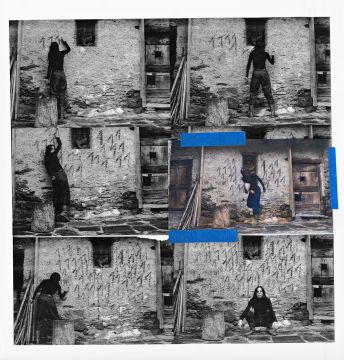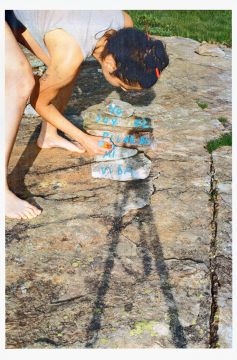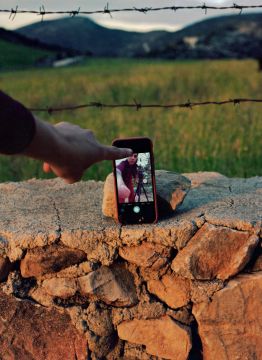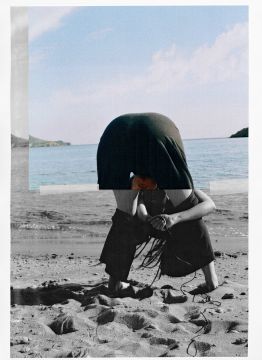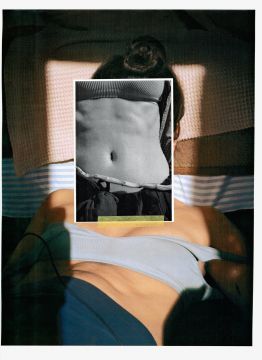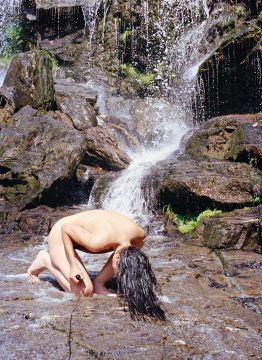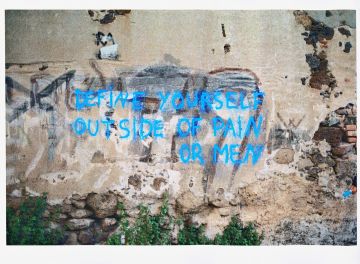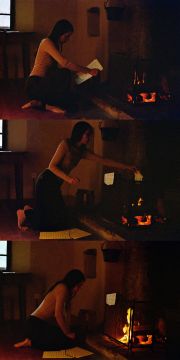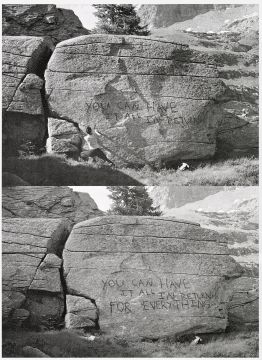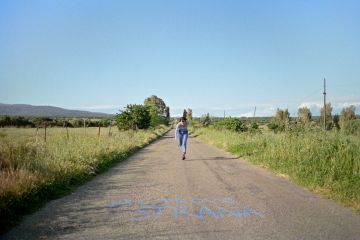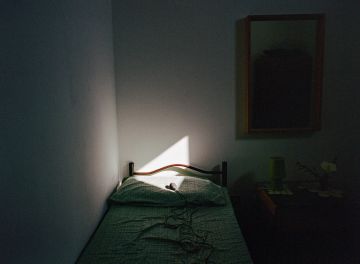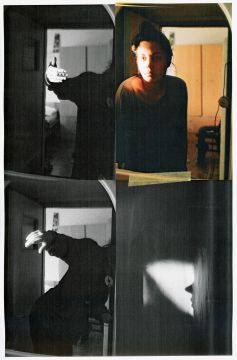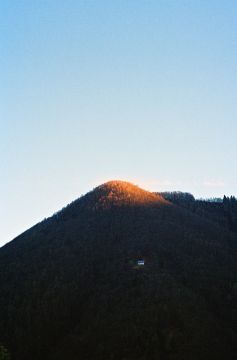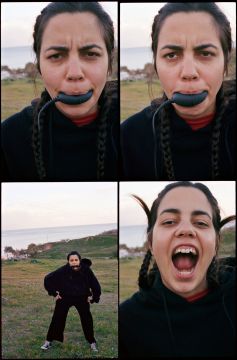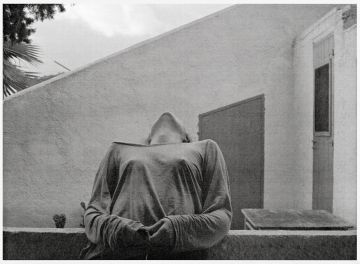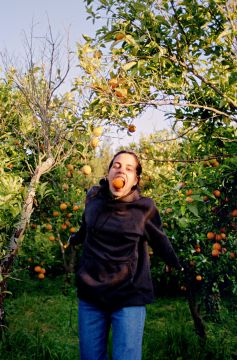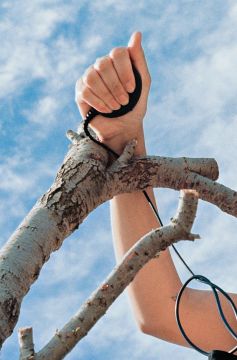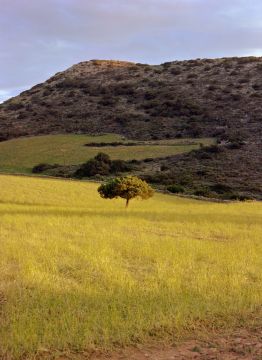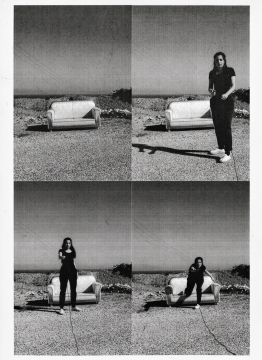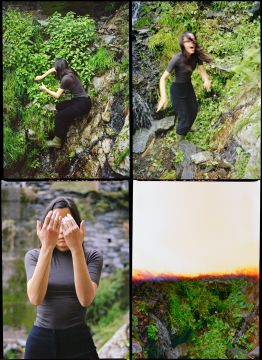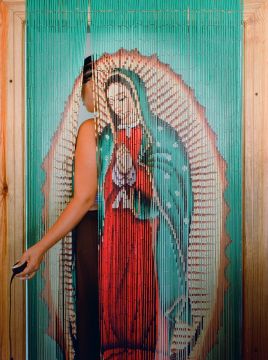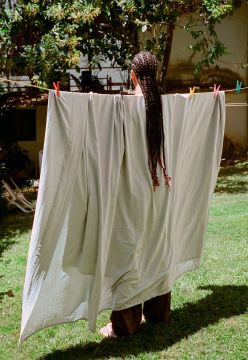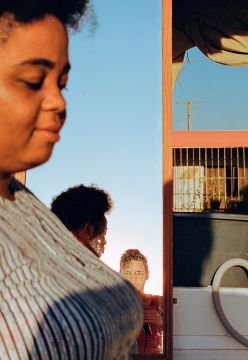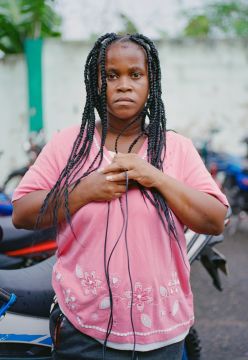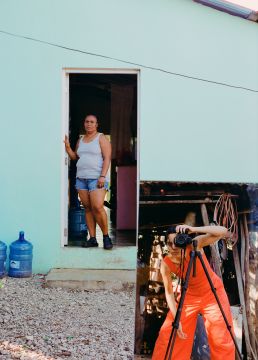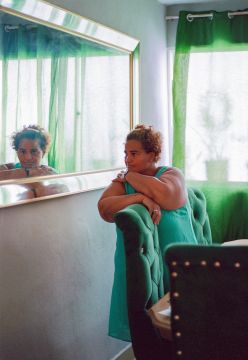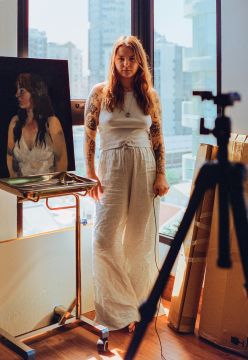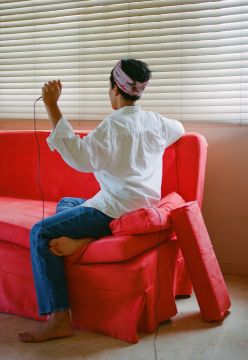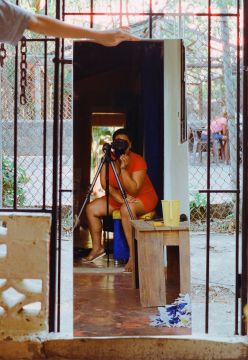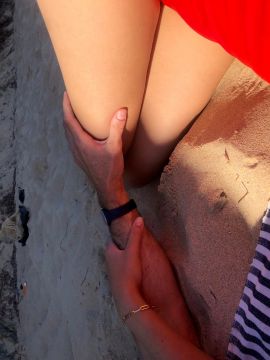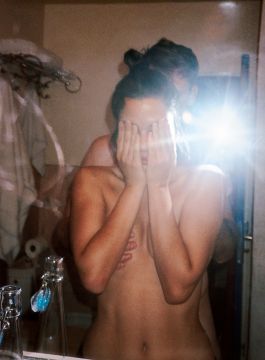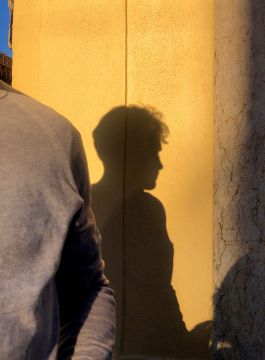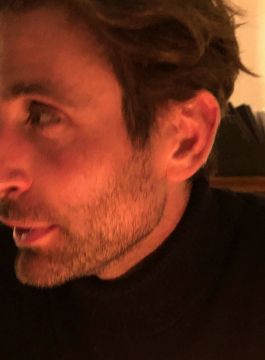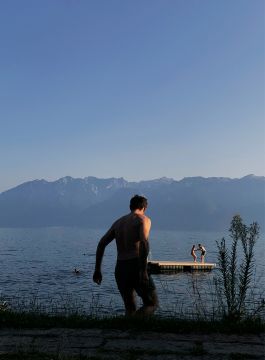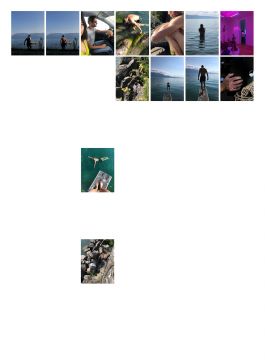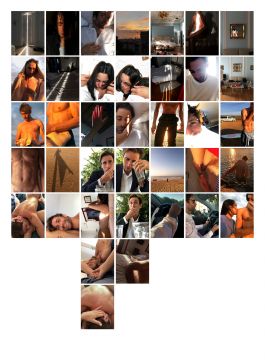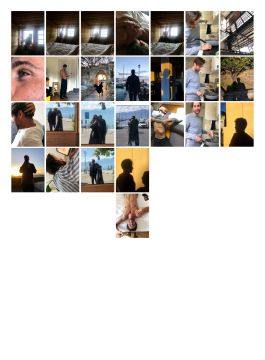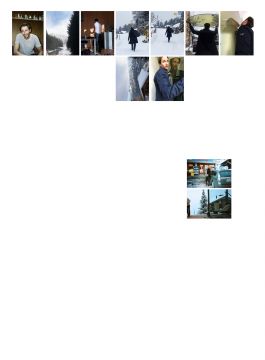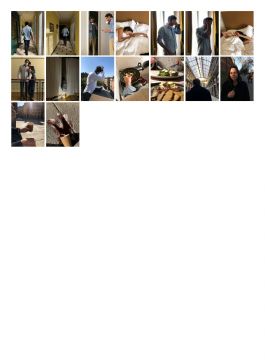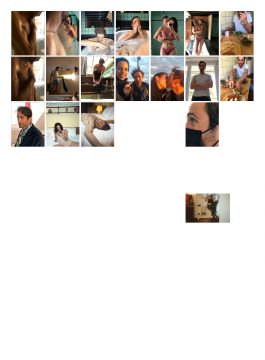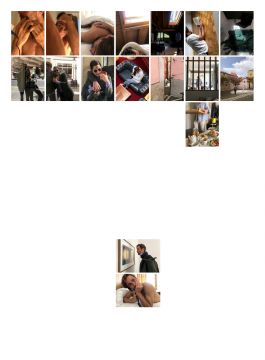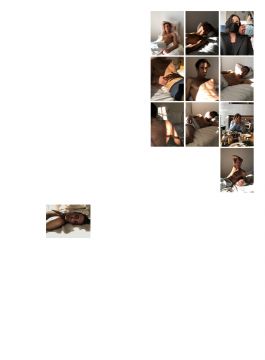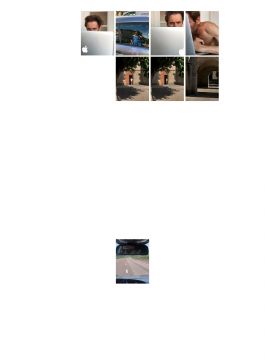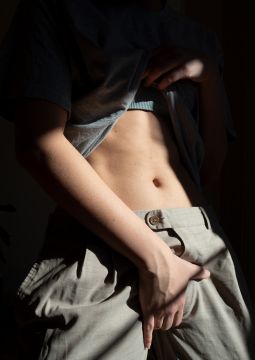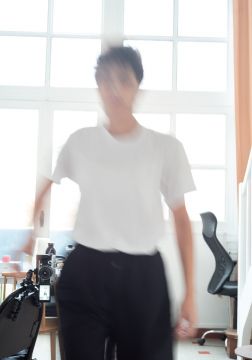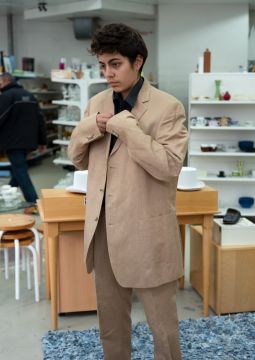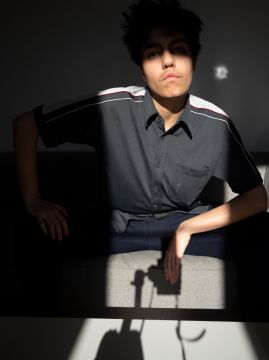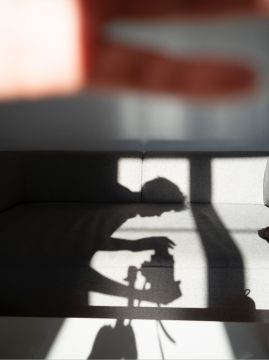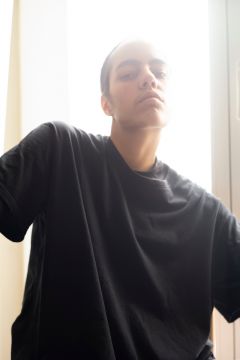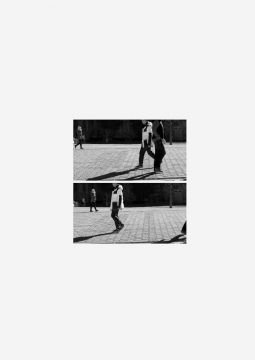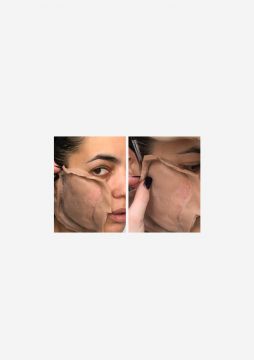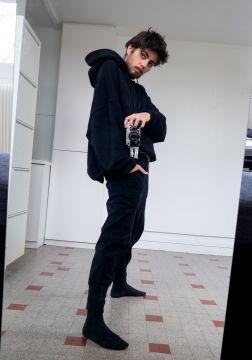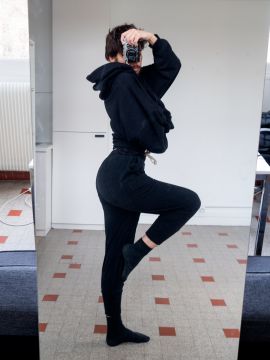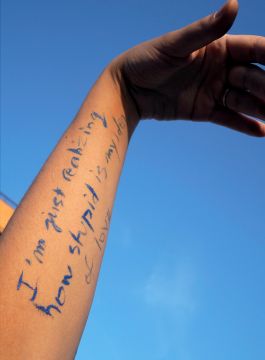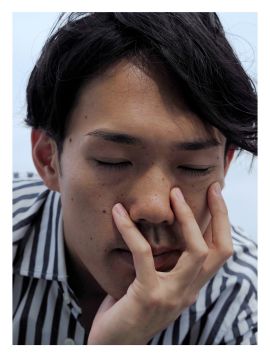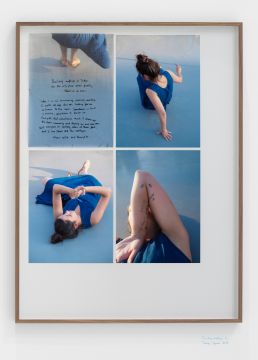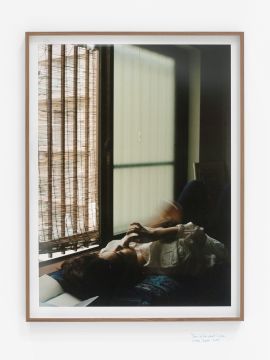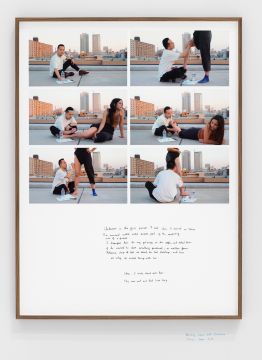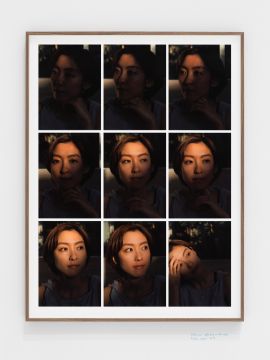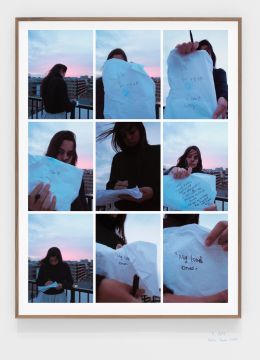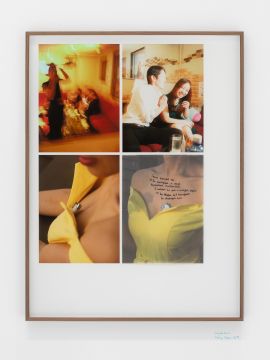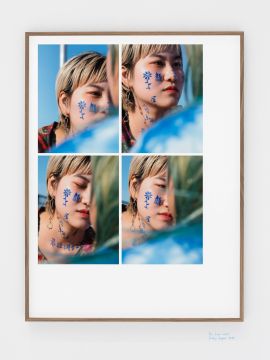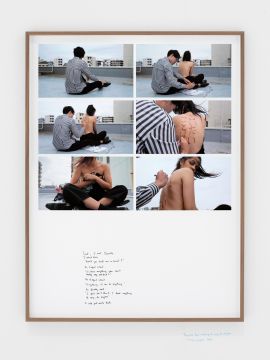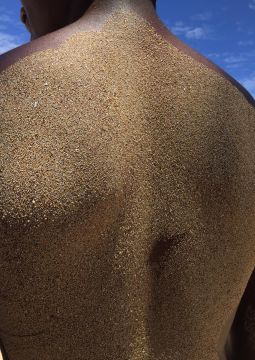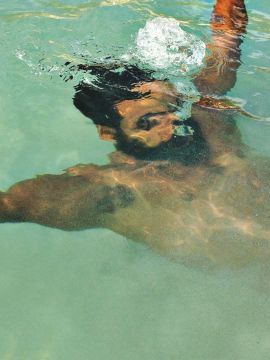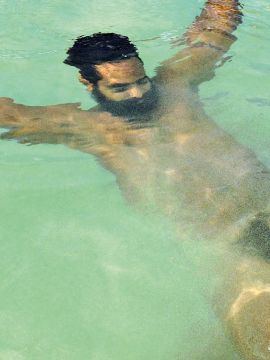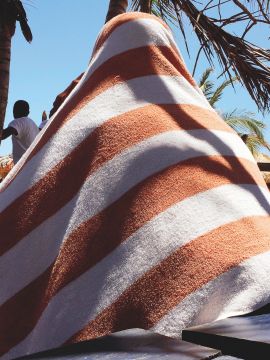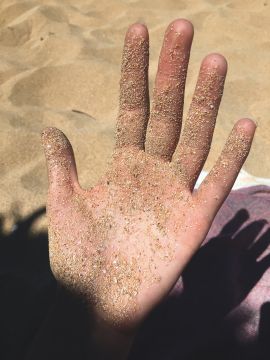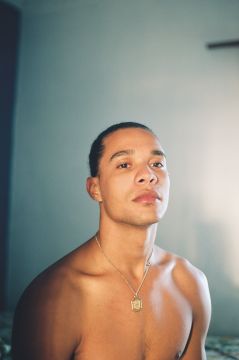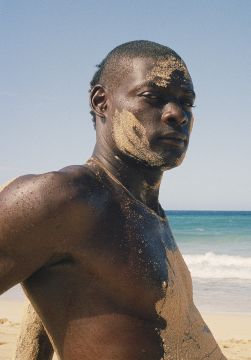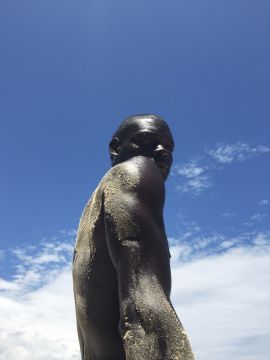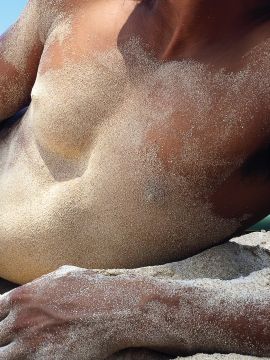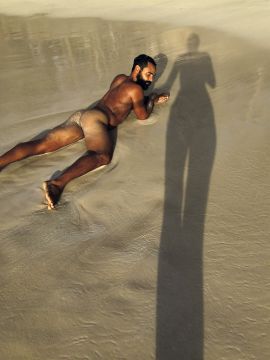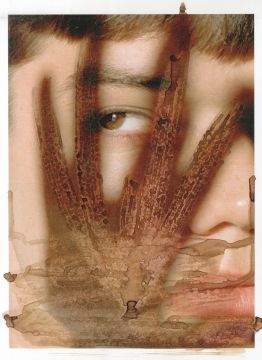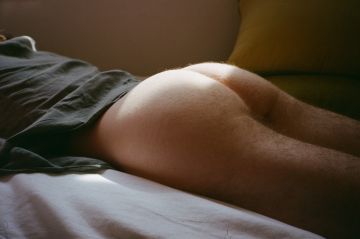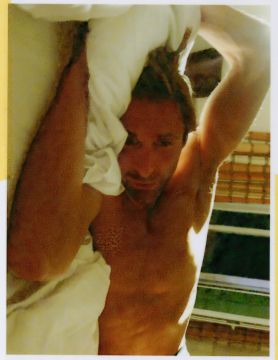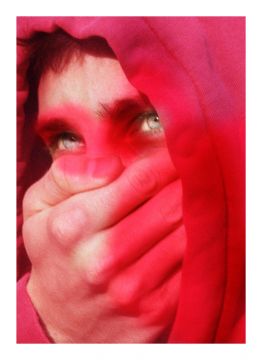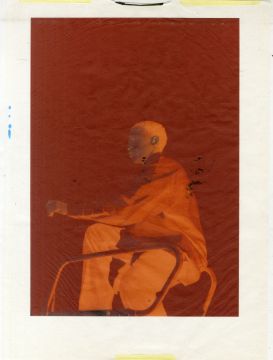You Can Have it All
Karla Hiraldo Voleau uses the means of photography and performance to radically examine her own body, intimacy, and desire. Autobiographical events often form the starting point for a relentless self-interrogation. You Can Have It All (2019, 2024) takes a letter the artist wrote to her five-year-older self as an opportunity to reflect on love relationships, self-acceptance, and emancipation from social expectations. In the form of a visual diary, the artist documents a solo trip to Greece and uses the performative appropriation of her own appearance to address and free herself from the suffering caused by body dysmorphia.
The second part of the work, which can be read as a response to her younger self, documents the healing process five years later, following the failure of a love relationship. The practice of various transformative and spiritual rituals becomes a zone of confrontation and offers an opportunity to face one’s emotions and fears. By incorporating these practices, the photo series also gives new visibility to lost knowledge, often vilified as witchcraft, in the spirit of feminist empowerment.
– Jana H. Haeckel
Doble Moral
In the Dominican Republic, abortion is illegal under all circumstances, with sentences of up to 20 years of imprisonment. Despite the international debate, the "tres causales" (incest/rape, danger to the mother's life, non-viable fetus) are still not recognized. Abortion remains clandestine, influenced by misogynistic Christianity and a deeply rooted patriarchy. Many conversations with Dominican activists have revealed that abortion is a common practice despite the ban.
‘Doble Moral’ aims to give voice to Dominican women through their stories of illegal abortions and encouraging, supportive photographic portraits. The project is the laureate of the Picto Talent Prize 2024, and recipient of the CNAP grant ‘Soutien à la photographie documentaire contemporaine’ 2023 + Pro Helvetia research trip grant 2023 + the City of Lausanne ‘Soutien à la création’ 2023 + Playsuisse x Basecamp Locarno grant 2023. It consists of 30 testimonies and as many portraits and self-portraits - partly anonymous to protect the identity of the participants.
Another Love Story
‘'Another Love Story' is based on a personal story; the artist presents a series of photographs and texts that reconstruct and replay the last months of her relationship with a man, named X for the sake of anonymity. Karla Hiraldo Voleau relates the bascule which took place during their history, namely the discovery of the double life of X. The revelation takes place during a telephone conversation (transcribed in the exhibition), between the artist and X’s other companion, herself unaware of the duplicity. What to do when one finds oneself dispossessed of its history? Karla Hiraldo Voleau decides to reappropriate this narrative, by rephotographing all the captured moments of her relationship, identically, with the help of an actor she hires to play X’s double. The choice of a double is at the same time a means to protect herself legally, but also a fabulous device allowing the artist to emancipate herself from her former lover. Both performer and photographer, Karla Hiraldo Voleau, offers a mise en abyme of her own story and makes palpable the social codes attached to couples. 'Another Love Story' proposes a reflection on the photographic medium and its place as a silent witness of our lives. Here, the image fails to capture the truth of a relationship and only bends to our desires, to our wishes, to expose the feeling of love even if it remains elusive.’ – Clothilde Morette, curator
A Man In Public Space
For one week, Karla Hiraldo Voleau slipped into the skin of her 'masculine alter ego' in order to study the changes in attitudes towards her, and to observe how her own behaviour changed. Her exploration takes the form of self-portraits, texts, snapshots and video stills. She immerses the viewer in her unique, terrifying, funny and exciting experience. Her installation questions the influence of gender identity on our actions and in public spaces. The first set of images in 'A Man In Public Space', created in Lausanne, were presented as part of the festival 'Bieler Fototage' in 2021; for the second part of the series, Karla Hiraldo Voleau has repeated the experiment, this time in Paris. Inspired by the rise in feminist demonstrations and woman artists such as Adrian Piper and Katarzyna Kozyra, she has created a photographic performance about transgressing genders and the codes associated with them. With the help of the SFX artist Mélanie Vargas, she once again slips into the skin of her 'male alter ego' in order to study questions of masculinity in public space.
I Have Nothing to Tell You
In her series 'I Have Nothing to Tell You', Karla Hiraldo Voleau shows the exchange with young Japanese people about their personal secrets and experiences in love. New offers of various services in the field of love for women in Japan had made her curious about the dating culture there. The artist brought the great cultural differences, especially in relation to love, her own love story and current emotions into the exchange with the Japanese. Despite major language barriers, she was able to facilitate the intimate exchange of personal secrets on Tokyo's rooftop terraces by writing on each other's skin. 'I admire how Karla Hiraldo Voleau has managed to transform insecurities and difficulties on a personal level into a work that touches on universal questions. Questions about how to really connect with people, how to find solace in contact with others and how to share feelings of love and loss', remarks Kim Knoppers, curator at Foam Fotografiemuseum Amsterdam.
Hola Mi Amol
French-Dominican photographer Karla Hiraldo Voleau grew up with one constant warning: 'Never date a Dominican.' In 'Hola Mi Amol', Hiraldo Voleau returns to the Dominican Republic to cast her gaze on the bodies of the many men she meets, mostly men working in the tourism trade. There, she explores desire, sex, and love in this luscious, tender, and sexy debut. Her sensual, unstaged, mostly nude, photos of the men she connects with are punctuated by vulnerable self-portraits of their intimate encounters. 'Hola Mi Amol' unfolds into a story that is at once fierce, funny, and compassionate. In the DR without her mother, aunt, or grandmother (all of whom had fallen in love, married, or had a child there), and out of sight of her male relatives there, Voleau frees herself to the borders of what feels 'allowed' in love, sexuality, and friendship. Inevitably, her document of this edge carries a trace of the often brutal loneliness of our times. Hiraldo Voleau’s curiosity about eroticism, virility, cultural and racial identities, and the status of the female-gaze vibrates throughout the works of this sly and stunning debut.
